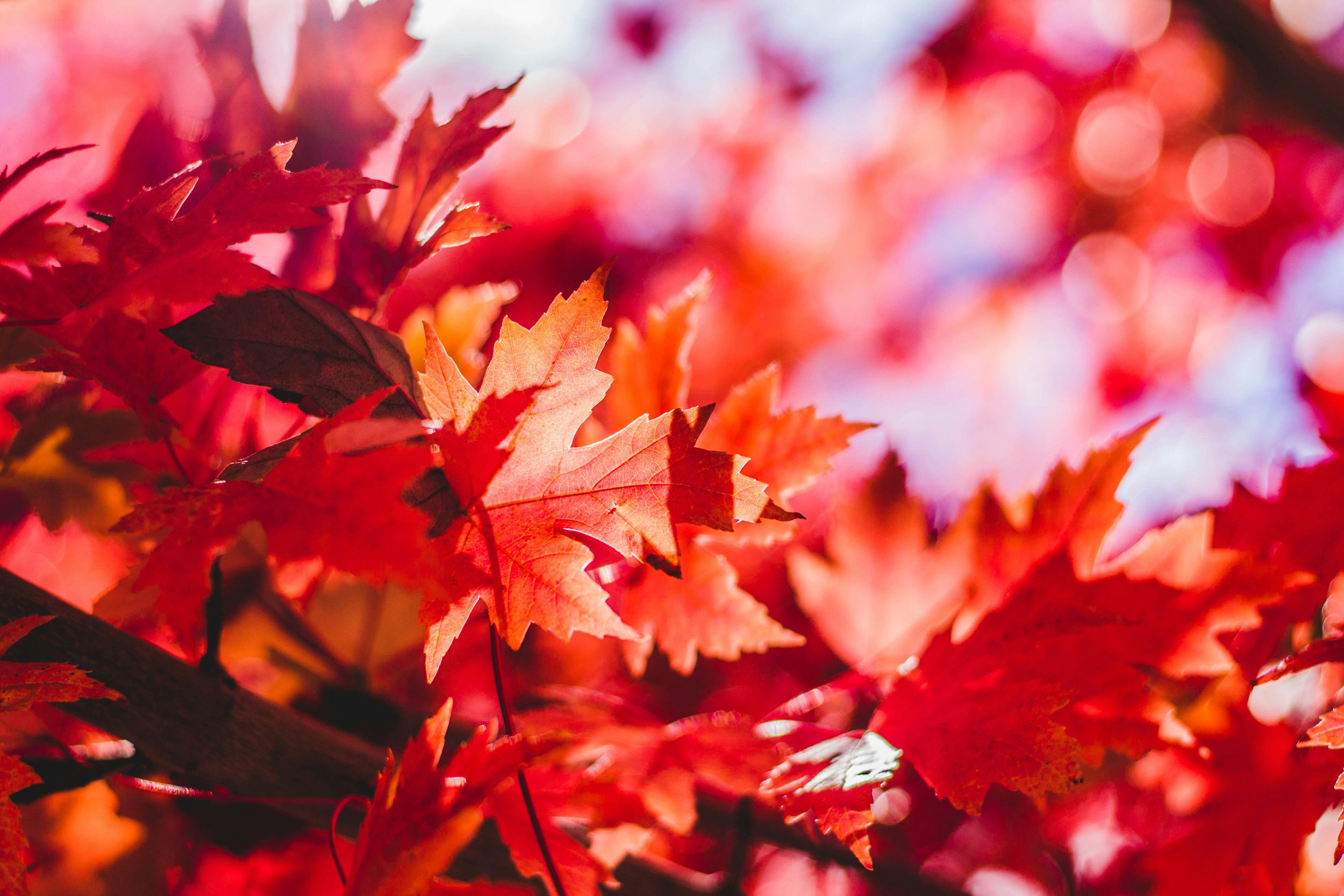Autumn in New England
Photo by Jeremy Thomas on Unsplash
Autumn belongs to New Englanders. It is our color, our breath. The mortar of our bones. We bathe in crimson and maroon, russet plum and tangerine, wrapped in scarfs, hats and scarfs, against a dark that is too intimate and walks too close. Brisk steps are outpaced by our gray breaths. And as we walk, we count bricks. Twelve bricks home. Six bricks to the mailbox. Post the letter, open the bills, consider the politician who cleverly paired voting information with the Patriots’ game schedule. You had to recount the steps to your front door because a hawk called and distracted you. Honeybees sing in the stone crop, the wind indigo.
In another time, without cars and electric lights, and even in a time with cars and electric lights, autumn nights ask to be read in. For candles that smell faintly of cloves; for depthless stories that thrum canary yellow edged with graphite. You think during autumn nights, more so than in the summer. Yesterday and years ago collapse into an iron breath - not sharp, just metallic - and the story you want to hear is metallic. You want to take a torch to it and melt off its edges.
In the smoke of hot tea, signs and wonders play out Chopin nocturnes. A barred owl calls, the heartbeat of a whispering forest, deep enough and familiar, as if the woods were really home and everything else was a stopover. The owl’s eyes blink at you through the window. But you cannot see him.
Light pops and hisses from candles. A crock of soup warming above blue and orange flames. Trace your finger against the bookshelf, a film of dust like morning fog. Somewhere, way out there, there is a white steeple and a stone wall. Last November, your neighbor complained the stones were falling and patiently, you restored the line in a lingering silence. You remember the stones heavy with latent puritanism and how they fell like musket balls.
And, somewhere, the trill of fifes faintly over the hill.
A chill creeps through the well-worn dormer and from way up in the eves, descends down. You pull your sweater tighter. Perhaps you’ll take up the paper, for those metallic stories. But, more likely, you’ll be distracted away from them and stare into the candle flame, thinking about last autumn and tomorrow simultaneously. You’ll want something of that same infinite thickness, something golden and smoky and melancholic.
You thumb Waugh’s Brideshead Revisited or The Secret History by Donna Tartt off the shelf. They knock into The End of the Affair and almost send it down. Three stories for autumn.
None of them are especially “New England,” except for The Secret History. Set in Vermont, what else could it be? But it is not the setting that makes it so, although it does help a great deal. It is the tone. A bit resistant, somewhat reluctant, cold, but not unkind. Distanced. Navy blue. A lot of cerebral space, like an owl almost. Occupying space and watching, undetected until he decides to move.
Brideshead Revisited and The Secret History are a good pair. Two stories of friendship, both necessarily haunted, asking, “What is life? Is it a myriad of plum-pink events, teddy bears and unfiltered cigarettes?” Weialala leia. Or is it carnal, lives bleeding into one another to be devoured? A place where everyone, even if they are alive, are somewhat dead?
Perhaps.
Or perhaps, it is as we see life now. Autumnal – a consideration of the beginning that appears like the end. There is distance between these stories and you, one that does not shock nor horrify for the sake of scandal. There are subtle movements that jar slightly, shake cobwebs from those corners you neglect to dust because they are too high. You’ll ask yourself, after reading these, “Where is He?” and if you refuse to ask so pointed, so intimate a question, consider asking, “What was that?” - that dark shadow that edged Himself into the narrative. For Waugh, it is somewhat obvious. Greene, even more so, surprisingly. Tartt, less so but there, in the shock of life without Him, in decisions made with pagan fervor for the sake of pagan concepts.
These are not explicitly Catholic tales, but the three converts - Waugh, Greene, and Tartt - ask to be considered. In autumn, read “unconsciously” Christian works (Eliot, Religion and Literature). As a New Englander, this is easy for you. Overt religiosity makes you uncomfortable - revivals and all that - unnatural to your November sensibilities. You’d prefer the subtle hints of something greater, like leaves turning red in August, for that one day when everything is on fire.
The kettle clicks and the sound reverberates out into nothing. Outside as much as in here, there is space to think and change and die. You should hold your breath but you are actually breathing easier. Something moves in the corner but you are not afraid; you’re considering Him.


